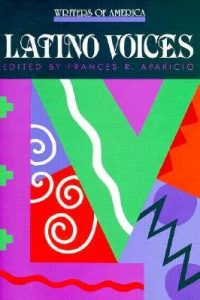 Latino poets, novelists and journalists contribute to an exciting anthology of works that give voice to the dreams, desires, fears, and painful struggles of the Latino community as they write about family, oppression, and success while living as Americans.
Latino poets, novelists and journalists contribute to an exciting anthology of works that give voice to the dreams, desires, fears, and painful struggles of the Latino community as they write about family, oppression, and success while living as Americans.
Biography – Autobiography- Memoir
Henry Cisneros
Play Ball!
The Eyes Of The Weaver: Los Ojos Del Tejedor
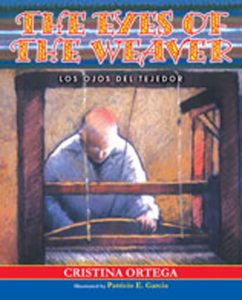 Cristina Ortega is the granddaughter of Juan Melquiades Ortega, a master weaver of northern New Mexico’s Chimayó Valley. Chimayó’s roots are in early Spanish Colonial times and has long been famous for its unique weavings. Juan M. Ortega was taught to weave by his father in the early days when weavers sheared their own sheep and spun and dyed the wool for their blankets. El Tejedor (The Weaver) continued weaving until he was one hundred years old, when his eyesight failed him. In The Eyes of the Weaver, Cristina shares her memories of visits when she was ten years old with Grandpa in the village of Chimayó, where he taught her how to weave. She also recalls how Grandma helped her husband choose color combinations for his Chimayó blankets. It was during these visits that Cristina learned how important it is for a child to listen to and learn from his or her relatives.Some of Juan M. Ortega’s weavings and tools of the trade have been included in the exhibit, “American Encounters,” at the National Museum of American History, Smithsonian Institution, in Washington, D.C.Reading level: 10 years and up
Cristina Ortega is the granddaughter of Juan Melquiades Ortega, a master weaver of northern New Mexico’s Chimayó Valley. Chimayó’s roots are in early Spanish Colonial times and has long been famous for its unique weavings. Juan M. Ortega was taught to weave by his father in the early days when weavers sheared their own sheep and spun and dyed the wool for their blankets. El Tejedor (The Weaver) continued weaving until he was one hundred years old, when his eyesight failed him. In The Eyes of the Weaver, Cristina shares her memories of visits when she was ten years old with Grandpa in the village of Chimayó, where he taught her how to weave. She also recalls how Grandma helped her husband choose color combinations for his Chimayó blankets. It was during these visits that Cristina learned how important it is for a child to listen to and learn from his or her relatives.Some of Juan M. Ortega’s weavings and tools of the trade have been included in the exhibit, “American Encounters,” at the National Museum of American History, Smithsonian Institution, in Washington, D.C.Reading level: 10 years and up
Magic Windows / Ventanas Mágicas
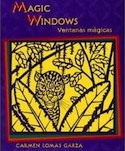
In Spanish and English, Carmen Lomas Garza portrays her family’s Mexican customs and her life as an artist, and the legends of her Aztec past through cut-paper work (papel picado).
Manfish: A Story Of Jacques Cousteau
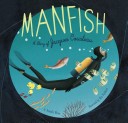
Before Jacques Cousteau became an internationally known oceanographer and champion of the seas, he was a curious little boy. In this lovely biography, poetic text and gorgeous paintings combine to create a portrait of Jacques Cousteau that is as magical as it is inspiring.
Mama Miti
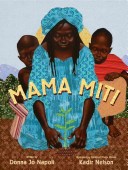
One woman. One seed. One hope for the future. Wangari grew up in the shadow of Mount Kenya listening to the stories about the people and land around her. Though the trees towered over her, she had loved them for as long as she could remember. So strong, so beautiful, how the trees made her smile. Wangari planted trees one by one to refresh her spirit. When the women came to her for help with their families, she told them to do the same. Soon the countryside was filled with trees. Kenya was strong once more. Wangari had changed her country, tree by tree. Donna Jo Napoli tells a story inspired by the life of 2004 Nobel Peace Prize recipient Wangari Maathai that will touch the hearts and spirits of all who read it. Kadir Nelson’s stunning collage illustrations honor the spirit of a land and of the woman who saved it.
Adventures on the Ancient Silk Road
A gripping account of three dramatic journeys that changed history. The fabled Silk Road conjures up the sights, smells and sounds of faraway lands. But traveling the Silk Road took years, and those who set out encountered bandits, starvation and treacherous storms. Adventures on the Ancient Silk Road introduces readers to three great historical figures: Chinese Buddhist Xuanzang, whose 16-year journey from China to India and back (629-645 AD) is the only source we have for huge chunks of the history and geography of this time. His successful search for Buddhist scriptures changed the course of two great nations. Genghis Khan, bred from infancy to be a warrior, brought the Mongol clans together. He established the greatest empire the world had seen, which ruled the Silk Road from 1201 to 1227. Italian merchant Marco Polo journeyed through China from 1271 to 1295. He changed the way Europe saw the world, and his book even inspired Columbus to sail west across the Atlantic Ocean in search of China. Beautiful photographs and art depicting the ancient routes and peoples bring the stories to life. Maps, sidebars and an afterword that updates the story of the Silk Road are also featured.
Nelson Mandela: Long Walk to Freedom
Nelson Mandela’s autobiography offers a glimpse into the mind of a great leader, admired across the globe for his dedication to the struggles against apartheid in South Africa. Now the youngest readers can discover the remarkable story of Mandela’s long walk from ordinary village boy, to his dynamic leadership of the African National Congress, to his many long years in prison–and, at last, his freedom and astonishing rise to become the leader of his country.
More About Boy: Roald Dahl’s Tales from Childhood
 More About Boy is the expanded story of Roald Dahl’s childhood, with his original text augmented by never-before-seen material from behind the scenes, and some of the secrets that were left out.
More About Boy is the expanded story of Roald Dahl’s childhood, with his original text augmented by never-before-seen material from behind the scenes, and some of the secrets that were left out.
Starting-point — Papa and Mama — More about Mama — Kindergarten, 1922/3 — A grand time — Llandaff Cathedral School, 1923/5 (age 7/9) — The bicycle and the sweet-shop — The great mouse plot — A life without sweets — Going to Norway — The magic island — A visit to the doctor — The last lap — St. Peter’s, 1925/9 (age 9-13) — First day — Writing home — The matron — Homesickness — A drive in the motor-car — The Maccano chariot — Captain Hardcastle — How I became a writer — Little Ellis and the boil — Goat’s tobacco — Repton and Shell, 1929/36 (age 13/20) — Getting dressed for the big school — Boazers — Painful punishments — The headmaster — Chocolates — Horrid little boys and girls — Corkers — Fagging — That awful cold bath — Games and photography — Goodbye school — P.S — Excerpt from Going solo — A Dahl-tastic quiz.


